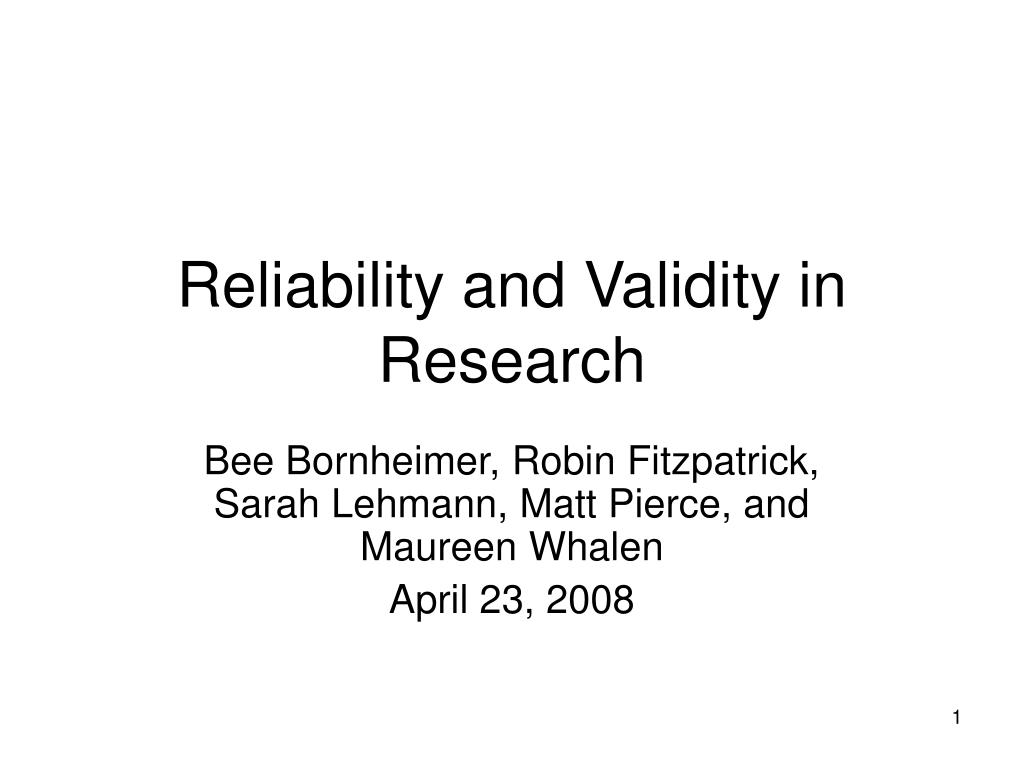
On retest, people come out with three to four type preferences the same 75 to 90 of the time.

Confirmatory factor analytic frameworks are helpful in understanding the complex multidimensional nature of contamination by isolating different sources of variance. Reliability (when scores are treated as continuous scores, as in most other psychological instruments) is as good as or better than other personality instruments.

This is explained by considering the example of a weighing machine. Several types of evidence can be collected to support test validation, including evidence from criterion-related validity, content-oriented validity, and construct validity. A test may be reliable without being valid, and vice versa. The chapter reviews some of the key concepts underlying the science of testing, particularly reliability and validity. It focuses on three common types of error that are often present in psychological measures: error associated with different items, error associated with different raters, and error due to issues related to momentary, time-limited phenomena. Every measuring instrument, whether it is a yard-stick or an inventory of depression, must have two properties: the instrument must yield consistent measurement. This chapter reviews some more practical issues, such as test security, efficiency, access to norms, and delivery. Scales that measured weight differently each time would be of little use. For example, if a person weighs themselves during the day, they would expect to see a similar reading. Test consumers want to make sure that the scores that assessments yield are representative of the knowledge, skills, abilities, and other characteristics of the person who is taking the test possesses. The term reliability in psychological research refers to the consistency of a quantitative research study or measuring test.


 0 kommentar(er)
0 kommentar(er)
